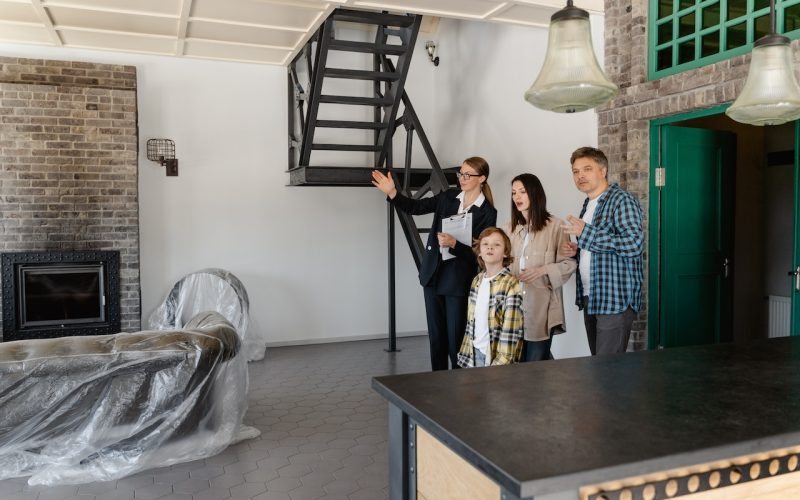Home Sweet Investment: Why Homeownership Pays Off
Owning a home is more than just a place to live – it’s a sound investment. In this comprehensive guide, we’ll explore the financial benefits of homeownership and why it pays off in the long run. Learn how owning a home can be a wise and rewarding investment.
Beyond Shelter: The Financial Advantages
- Home Equity: Homeownership allows you to build equity in your property. Equity is the difference between your home’s market value and your outstanding mortgage balance. With each mortgage payment, your equity grows, effectively increasing your net worth.
- Property Appreciation: Real estate typically appreciates over time. While market fluctuations occur, the long-term trend is upward. Property appreciation adds to your wealth by increasing the value of your home. When you sell, this appreciation can translate into a substantial financial gain.
- Tax Benefits: Homeownership comes with various tax advantages. Mortgage interest, property taxes, and certain home-related expenses can be tax-deductible. These deductions result in annual savings and reduce the overall cost of homeownership.
- Forced Savings: Paying a mortgage is a form of forced savings. Unlike renting, where monthly payments solely cover living costs, a portion of your mortgage payment contributes to building equity and increasing your net worth. Over time, this can lead to significant savings.
- Stability and Predictability: Homeownership provides financial stability and predictability. Unlike renting, where rents can increase or lease terms can change, homeowners often have fixed-rate mortgages. This stability allows for better long-term financial planning.
Table 1: The Financial Advantages of Homeownership
| Advantage | Description |
|---|---|
| Home Equity | Building wealth through the growth of property value and the reduction of mortgage balance. |
| Property Appreciation | Real estate tends to increase in value over time, contributing to long-term wealth. |
| Tax Benefits | Tax deductions for mortgage interest, property taxes, and some home-related expenses. |
| Forced Savings | Paying a mortgage acts as a form of savings, increasing your net worth. |
| Stability and Predictability | Fixed-rate mortgages provide financial stability and predictability in housing costs. |

Personal Fulfillment and Security
- Personalization and Pride: When you own a home, you have the freedom to personalize it to your liking. You can decorate, renovate, and landscape according to your preferences. This sense of ownership and the ability to create a space that truly reflects you is a unique aspect of homeownership.
- Community and Relationships: Homeownership often means putting down roots in a community. You become a part of the neighborhood, build relationships with neighbors, and contribute to a sense of belonging. This community aspect of homeownership can lead to a fulfilling and rewarding life.
- Future Security: Homeownership is a long-term investment that can provide financial security in retirement. As you pay down your mortgage, your housing costs decrease, making retirement more affordable. Additionally, you can sell your home or use it to generate rental income, helping to fund your retirement years.
Table 2: Personal Fulfillment and Security
| Advantage | Description |
|---|---|
| Personalization and Pride | The freedom to personalize and create a home that reflects your preferences. |
| Community and Relationships | Becoming a part of a neighborhood and fostering a sense of belonging. |
| Future Security | Building a financial asset that can provide security and affordability in retirement. |
Preparing for Homeownership
Owning a home is a significant financial commitment, but it’s also a rewarding investment. Here are essential steps to prepare for homeownership:
- Financial Preparedness: Create a comprehensive budget that includes all homeownership costs, from mortgage payments to maintenance and taxes. Ensure that your budget aligns with your financial goals.
- Emergency Fund: Build an emergency fund to cover unexpected expenses, including home repairs or changes in your financial situation. An emergency fund is crucial for financial stability.
- Mortgage Readiness: Obtain a mortgage pre-approval to understand your budget and the type of mortgage you can secure. This step helps you make a realistic budget.
- Home Selection: Choose a home that aligns with your budget and financial goals. Consider the long-term aspects of the property, such as location and potential for appreciation.
- Market Research: Keep an eye on local real estate market trends to make informed decisions about your home purchase. Understanding property values in your area is essential for financial planning.
- Long-Term Vision: Approach homeownership with a long-term perspective. The advantages of owning a home often accumulate over several years. It’s a journey that requires patience and commitment, but the long-term rewards are well worth the effort.
Conclusion
Owning a home is more than just a place to live; it’s a solid investment in your future. Homeownership offers the advantages of building equity, benefiting from property appreciation, enjoying tax savings, and experiencing personal fulfillment and security. As you embark on the journey of homeownership, remember that it’s not just a house; it’s a realization of your American Dream. It offers the potential for a secure and prosperous future, both financially and personally.












